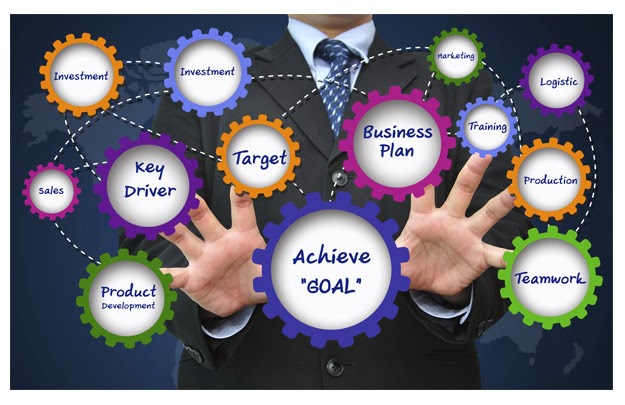Why charlotte event companies are critical for memorable events
A Deep Study How Event Management Works to Develop Memorable Experiences
Event management is a complex technique that combines numerous elements to craft remarkable experiences. It needs a clear understanding of the event's objective and target market. Coordinators must browse budgeting, logistics, and advertising and marketing to assure a seamless implementation. Each component plays a crucial role in achieving the preferred influence. The journey does not finish with the event itself. There are understandings to uncover that can form future ventures.
The Principles of Event Management
Effective event management includes a variety of vital concepts that guide the planning and implementation of successful events. At its core, it involves understanding the event's function, audience, and wanted outcomes. Recognizing the target group is essential, as it educates choices connected to material, marketing, and logistics.
Budgeting is one more essential facet, ensuring that resources are assigned efficiently while meeting the event's goals. This consists of preparation for unforeseen expenses that may occur.
Time management plays a crucial function, as event supervisors need to create a thorough timeline to coordinate different tasks and milestones.
Furthermore, effective communication among stakeholders, vendors, and staff member is vital to ensure positioning and prevent misunderstandings.
Risk management must be considered, with backup strategies in area to address possible challenges, consequently improving the overall experience for attendees and assuring a seamless execution of the event.
Key Roles in Event Planning
In event planning, understanding key functions is vital for effective execution. The event planner is in charge of supervising logistics and ensuring all aspects align with the vision. In addition, effective supplier management is vital for preserving quality and promoting solid collaborations throughout the planning process.
Event Planner Obligations
An event planner orchestrates the complicated components of event planning, making sure seamless execution from fertilization to verdict. They are accountable for conceiving the event motif, setting budget plans, and developing timelines to keep the job on course. Control with stakeholders, including clients, location supervisors, and volunteers, is important to straighten expectations and assist in communication. The coordinator likewise looks after logistics, such as food catering, transport, and technology needs, making sure all parts operate harmoniously. They perform website gos to, handle routines, and troubleshoot concerns that might arise during the event. Post-event, the coordinator reviews the event's success, gathering responses and assessing end results to notify future jobs. This diverse function requires strong organizational skills, focus to information, and reliable social interaction.
Vendor Management Basics
Steering with the landscape of vendor management is necessary for effective event preparation. Efficient vendor management involves identifying, selecting, and working with providers who supply crucial services, such as wedding catering, audiovisual assistance, and design. Event organizers should maintain solid interaction with vendors to guarantee that all aspects straighten with the event's vision. Trick functions consist of the supplier manager, who manages contracts and negotiations, and the logistics planner, accountable for on-site setup and implementation. It's essential to develop clear assumptions and timelines, fostering a joint atmosphere that enhances the general experience. By focusing on these aspects, event coordinators can navigate possible challenges, making certain that every detail contributes to a smooth and unforgettable event.
Crafting a Vision: Concept Growth

As soon as a vision is established, it becomes important to translate it right into workable components. This includes specifying the ambience, selecting proper places, and establishing the event's style. Working together with stakeholders, consisting of enrollers and companions, better refines the idea, making sure that all events share a linked understanding of the event's purpose. Eventually, a well-developed vision not just improves guest involvement yet additionally establishes the phase for remarkable experiences that resonate long after the event wraps up.
Budgeting and Source Allowance
With a clear vision in location, the following action in event management entails careful budgeting and resource allotment. This important phase assurances that all needed elements are funded and straightened with the event's objectives. Event supervisors begin by estimating costs associated with location choice, wedding catering, amusement, and advertising and marketing. They develop a thorough spending plan that details each classification, permitting transparency and accountability.
Resource appropriation expands beyond finances; it additionally incorporates human resources. Identifying group functions, responsibilities, and timelines is vital to ensure efficiency. Event supervisors need to also consider backups for unexpected costs or modifications in scope, developing a buffer within the spending plan.
Focusing on costs on elements that boost guest experiences is important. By purposefully allocating resources, find event supervisors maximize effect while maintaining economic control. This disciplined strategy not just cultivates effective events yet likewise builds trustworthiness and count on with stakeholders and individuals.
Logistics: The Backbone of Event Implementation
While budgeting lays the groundwork for an event, logistics act as its backbone, assuring that every aspect is carried out smoothly and effectively. charlotte event companies. This encompasses a vast array of view publisher site activities, consisting of venue option, transport setups, and equipment procurement. Efficient logistics management needs thorough planning and coordination to ensure that all aspects line up with the event's timeline and purposes
Key components of logistics include supply management, where supplies and products are tracked to avoid scarcities, and staffing, which includes recruiting and training employees to handle various tasks. Communication is additionally important, as it helps with partnership amongst vendors, enrollers, and the event group.

Marketing and Promotion Methods
Efficient advertising and promo approaches are important for optimizing presence and involvement at an occasion, as they produce rate of interest and enjoyment amongst possible individuals. Event supervisors use a mix of typical and electronic advertising methods to reach their target audience. Social network platforms, email projects, and targeted advertisements are typically used to create buzz and foster community interaction. Collaborations with influencers or sector leaders can boost credibility, while involving web content such as videos and reviews can resonate with potential participants.
Additionally, leveraging event-specific hashtags and producing shareable graphics encourages natural promotion amongst guests. Early bird ticket deals and special promotions can incentivize registration, furthermore boosting passion. Moreover, a properly designed site that offers simple navigation and clear details concerning the event can improve the customer experience. By executing these marketing and promotion approaches, event managers can guarantee greater exposure and inevitably produce an unforgettable experience for all individuals.

Gauging Success: Feedback and Examination
Success in event management rests on durable responses and evaluation devices. These processes are important for figuring out the effectiveness of an event and recognizing areas for renovation. By gathering input from attendees, coordinators can analyze contentment levels, understand choices, and evaluate overall effect. Surveys and interviews act as beneficial devices for gathering measurable and qualitative information, permitting for extensive evaluation.
Additionally, assessing crucial efficiency indicators (KPIs) such as attendance prices, engagement degrees, and return on investment (ROI) offers a more clear picture of event success. Post-event debriefing sessions with the preparation team Full Report likewise add insights, promoting a society of continual renovation.
Ultimately, a systematic technique to responses and evaluation not only improves future occasions however additionally reinforces relationships with stakeholders. By implementing these techniques, event managers can produce unforgettable experiences that reverberate with participants and drive ongoing engagement.
Frequently Asked Concerns
Exactly How Do Event Managers Deal With Unforeseen Difficulties During an Event?
Event managers address unforeseen difficulties by staying calmness, assessing the circumstance, and executing backup strategies - charlotte event companies. They communicate efficiently with their team, adjust promptly, and prioritize remedies to assure the event proceeds smoothly and successfully
What Technology Devices Are Essential for Modern Event Management?
Essential modern technology devices for contemporary event management include event enrollment software, task management applications, guest interaction systems, and analytics devices. These sources enhance procedures, improve communication, and enhance overall event experiences for coordinators and participants alike.
How Do Social Distinctions Effect Event Planning and Implementation?
Cultural distinctions considerably influence event preparation and execution. They affect motifs, customizeds, communication designs, and assumptions, requiring tailored techniques to guarantee inclusivity and regard, ultimately forming the overall experience and success of the event.
What Are the Moral Considerations in Event Management?
Moral considerations in event management incorporate openness, sustainability, cultural level of sensitivity, and inclusivity. Coordinators must focus on justness, respect varied audiences, lessen environmental effect, and warranty accessibility to create responsible and memorable experiences for all individuals.
Exactly How Can Sustainability Be Integrated Into Event Preparation?
Sustainability can be incorporated into event planning by using environmentally friendly materials, decreasing waste, sourcing local suppliers, carrying out carbon balanced out programs, and promoting digital solutions to minimize paper use, thus boosting ecological consciousness within the event's structure.